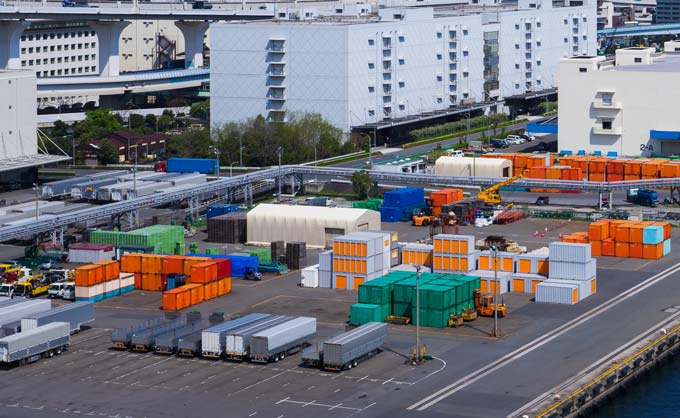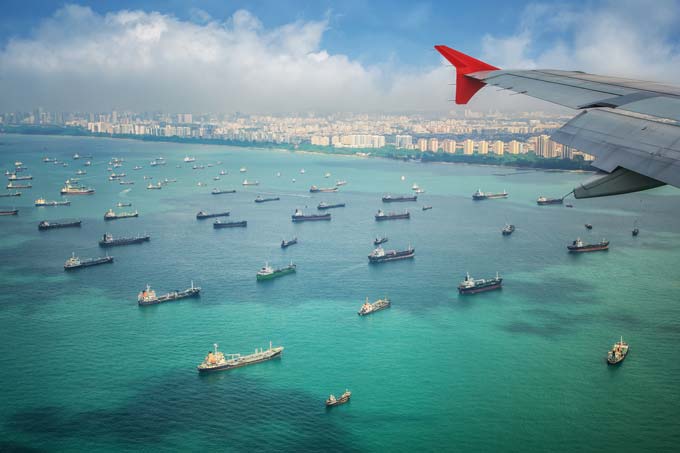UK ⇆ Malaysia Shipping Rates 2024
UK ⇆ MalaysiaGet Shipping Quote
Commercial shipping
We offer bespoke prices and contract rates based on your consignment’s volume and regularity. We help you to understand your business needs and offer you a rate and service that suits your business.
Please feel free to contact us and discuss your commercial shipping needs:
Direct line:
020 8867 0904 option 1.
Direct email:
[email protected]
Sea Freight

FCL Container Rates - Malaysia to UK
Port to Port charges FOB terms
| Malaysia | 20ft container | 40ft container |
| FOB Kelang TO UK SOU/FXT port |
£851.00 | £1075.41 |
| FOB Penang TO UK SOU/FXT port |
£875.00 | £1175.53 |
LCL Container Rates
- From our warehouse in Feltham TW14 to Malaysia Malaysia AND SURABAYA ports
- Excludes all destination charges in UK, DUTY and VAT.
Please submit the form in this page or call t to get an accurate cost estimate for cargo clearance and onward delivery within the UK.
| Total Volume * | Kelang port |
| 1 CBM | £163.10 |
| 5 CBM | £423.68 |
| 10 CBM | £700.69 |
Air Freight

Import AIRPORT TO AIRPORT
* Volumetric pricing:
- Please note that airlines charge at Volumetric weight and not the chargeable weight.
- Our rate does not include clearance and onward delivery within the UK.
| 50 kg | 200 kg | 500 kg | |
| Kuala Lumpur airport to UK HEATHROW airport | £250.00 | £496.00 | £795.00 |
* Documentation surcharge applies to any shipping to Malaysia.
* For an accurate price,
please use our
online quotation form above and provide detailed information about your shipment requirement to Malaysia.
Malaysia trade and export guide
1. Malaysia export overview
Malaysia is a multi-ethnic, multicultural and multilingual society. It’s a relatively open, newly industrialised market economy and is ranked highly in the World Bank’s ‘Ease of Doing Business’ survey.
Malaysia is a member of the Association of South East Asian Nations (ASEAN). It’s predicted that the ASEAN economy will become the fourth largest single market by 2030.
It’s one of the world’s top locations for offshore manufacturing and service based operations. Multinational corporations from more than 40 countries have invested in over 5,000 Malaysian companies.
Several large UK companies have a presence in Malaysia including Aberdeen Asset Management, Allied Pickfords, BAE Systems, BP, BAT, Debenhams, Dyson, Pinewood Studios, Shell, Tesco and Weir Group.
Benefits for UK businesses exporting to Malaysia include:
- English speaking, educated workforce
- current exchange rate makes UK products and services attractive
- strong historical and cultural ties
- similar business and legal practices
- similar technical standards
- close to major Asia Pacific economies
Strengths of the Malaysian market include:
- excellent infrastructure and transport connectivity
- well developed financial sector
- cost-effective gateway into to Asian markets
2. Challenges doing business in Malaysia
Major issues facing UK businesses include:
- public procurement process not transparent
- ranked in top third of countries in Corruption Perceptions Index
- a weak competitive environment (including policies that favour Bumiputera, the indigenous Malaysians)
- an overseas exodus of Malaysian talent
You should ensure you take the necessary steps to comply with the requirements of the UK Bribery Act.
3. Growth potential
3.1 Economic growth
Malaysia’s Gross Domestic Product (GDP) grew by 6.2% in the first quarter of 2014 compared to same quarter of the previous year. The annual growth rate has averaged 5% from 2000 until 2014. However, Malaysia’s economy is characterised by a reliance on finite oil revenues and a narrow tax base.
Bank Negara forecasts GDP growth of 4.5 to 5.5% in 2015. This will result from strong domestic demand and resilient exports.
Malaysia’s Economic Transformation Programme (ETP) focuses on the implementation of 12 National Key Economic Areas (NKEAs) which will contribute to sustainable economic growth.
3.2 Free Trade Agreements and partnerships
Malaysia has 16 bilateral Free Trade Agreements (FTA).
Malaysia and its ASEAN partners have established the ASEAN FTA.
A single regional common market of ASEAN countries will be created by 2015 under the ASEAN Economic Community (AEC). The regional integration aims to create:
- a competitive market of over 600 million people
- freer movement of goods, services, investment, skilled labour and capital flow
A Malaysia-European Union Free Trade Agreement (MEUFTA) is under negotiation.
4. UK and Malaysia trade
Malaysia is the UK’s second largest trading partner in ASEAN. UK and Malaysia aim to double bilateral trade from £4 billion to £8 billion by 2016.
UK goods exports increased by 8% in 2013.
The top 5 sectors for trade between UK to Malaysia are:
- machinery and transport equipment
- manufactured goods
- chemical and related products
- crude and fuel
- food, beverages and tobacco
The UK is a major investor in Malaysia with direct investments of £2.12 billion in 2012.
5. Opportunities for UK businesses in Malaysia
Department for International Trade (DIT) provides free international export sales leads from its worldwide network. Search for export opportunities.
5.1 Business services
Opportunities for UK companies include:
- establishment of multi-disciplinary practice construction firms
- establishment of data centres
5.2 Creative industries and Information and Communications Technology (ICT)
Malaysia’s ETP aims to enhance its creative industry to produce world-class content and make the country a regional hub for digital content. A creative industries incubator has been set up in the MSC corridor.
Opportunities for UK companies include:
- Film-in-Malaysia incentive is offering a 30% rebate to foreign production houses that spend a minimum of RM5 million in Malaysia
- establishing advanced data network centres
5.3 Education and skills training
Malaysia is fast becoming an ‘Educational Hub’ of the ASEAN region. British products and services linked to education and training are worth over £280 million a year.
Over 15,000 Malaysian students are studying at UK universities and the UK has the highest number of branch campuses in Malaysia.
Opportunities for UK companies include:
- coaching and mentoring training
- educational partnerships with universities and colleges
- corporate and executive training
- e-learning solutions
- Human Resource (HR) solutions
- ‘soft skills’ training
- English language training
5.4 Energy
Malaysia has the world’s 14th largest natural gas reserves and the 23rd largest oil reserves in the world. It aims to become Asia Pacific’s oil and gas hub by 2017. Malaysia expects offshore oil and gas production to equal onshore production in the next 15 to 20 years.
Malaysia also aims to grow alternative energy sources, such as nuclear, solar and hydro to cater to growing demands from an increased population.
Opportunities for UK companies include:
- deep water drilling technology
- Enhanced Oil Recovery (EOR) technology
- Liquified Natural Gas (LNG)
- oil and gas technology
- Oil Field Services and Equipment (OFSE) operations
- energy efficiency technology
5.5 Financial services
Kuala Lumpur is fast becoming the leading centre for Islamic finance in Asia. Islamic investments are forecast to top £1.3 trillion by 2015. A new financial district is being established in Kuala Lumpur (Tun Razak Exchange). Tax concessions are available to establish operations.
Opportunities for UK companies include:
- Sharia finance
- legal services
Contact [email protected] for more information on opportunities in financial and legal services.
5.6 Retail
Malaysia’s retail sector has grown in recent years due to:
- a sophisticated and cosmopolitan emerging middle class
- increasing number of megamalls and shopping centres
- increasing affluence and growing demand for quality goods and services
- tourist expenditure
Major British brands have a strong presence in Malaysian shopping malls, but there are still huge opportunities for UK companies. These include:
- establishing retail stores
- partnerships with local retailers
- exporting products to Malaysia as are import duties gradually being reduced
5.7 Transportation and infrastructure
Malaysia aims to make Kuala Lumpur and the Greater Klang Valley a world class city.
Construction of a mass rapid transit (MRT) system within the Greater Klang Valley is already underway. The Land Public Transport Commission (SPAD) also aims to build a high-speed rail system (HSR) connecting Kuala Lumpur to Singapore.
There are also plans to develop an efficient solid waste management system.
Opportunities for UK companies include:
- rail construction
- high-technology, green products
6. Start-up considerations
Routes into the Malaysian market include:
- local agent or distributors
- franchising
- setting up a company
All foreign companies must either register in Malaysia or incorporate a local company in order to trade within the country. This process must be done through the Companies Commission of Malaysia (SSM).
Options for business formation include:
- sole proprietorship or partnership
- private limited company or unlimited company (‘Sendirian Berhad’ and ‘Sdn. Bhd.’)
7. Legal considerations
Malaysia’s legal system is based on the English legal system.
Contact the Department for International Trade (DIT) team in Malaysia to help find tax and legal advisers before entering into agreements.
7.1 Standards and technical regulations
The Department of Standards Malaysia (Standards Malaysia) has responsibility for standards and accreditation.
The use of Malaysian Standards is voluntary except where made mandatory by regulatory authorities, this can include regulations or local by-laws.
7.2 Intellectual Property (IP)
The Intellectual Property Corporation of Malaysia (MyIPO) has responsibility for IP in Malaysia.
The 2013 International Property Rights Index Report ranks Malaysia 33 out 130 in the world in terms of Intellectual Property Rights (IPR).
8. Tax and customs considerations
The Royal Customs and Excise Department has responsibility for customs and tax in Malaysia.
8.1 Sales tax
Sales tax and service tax rates are currently 10% and 6% respectively.
A Goods and Services Tax (GST) will be implemented with from 1 April 2015. Sales tax and service tax will then be abolished. The GST rate will be fixed at 6%.
8.2 Company tax
The corporate tax rate is 25%.
The rate will be reduced by 1% to 24% from the 2016 assessment year.
8.3 Income tax
The individual tax rate is between 0 and 28%.
8.4 Customs
Tariff duties range from 2% to 60%. The highest duties are imposed on ‘luxury’ items and items deemed to be in direct competition with locally produced goods.
Import licences are required for certain controlled items.
A restrictive import licensing regime is also charged on heavy construction equipment, electrical household appliances, and iron and steel products.
You can find more about import tariffs in the Market Access Database.
